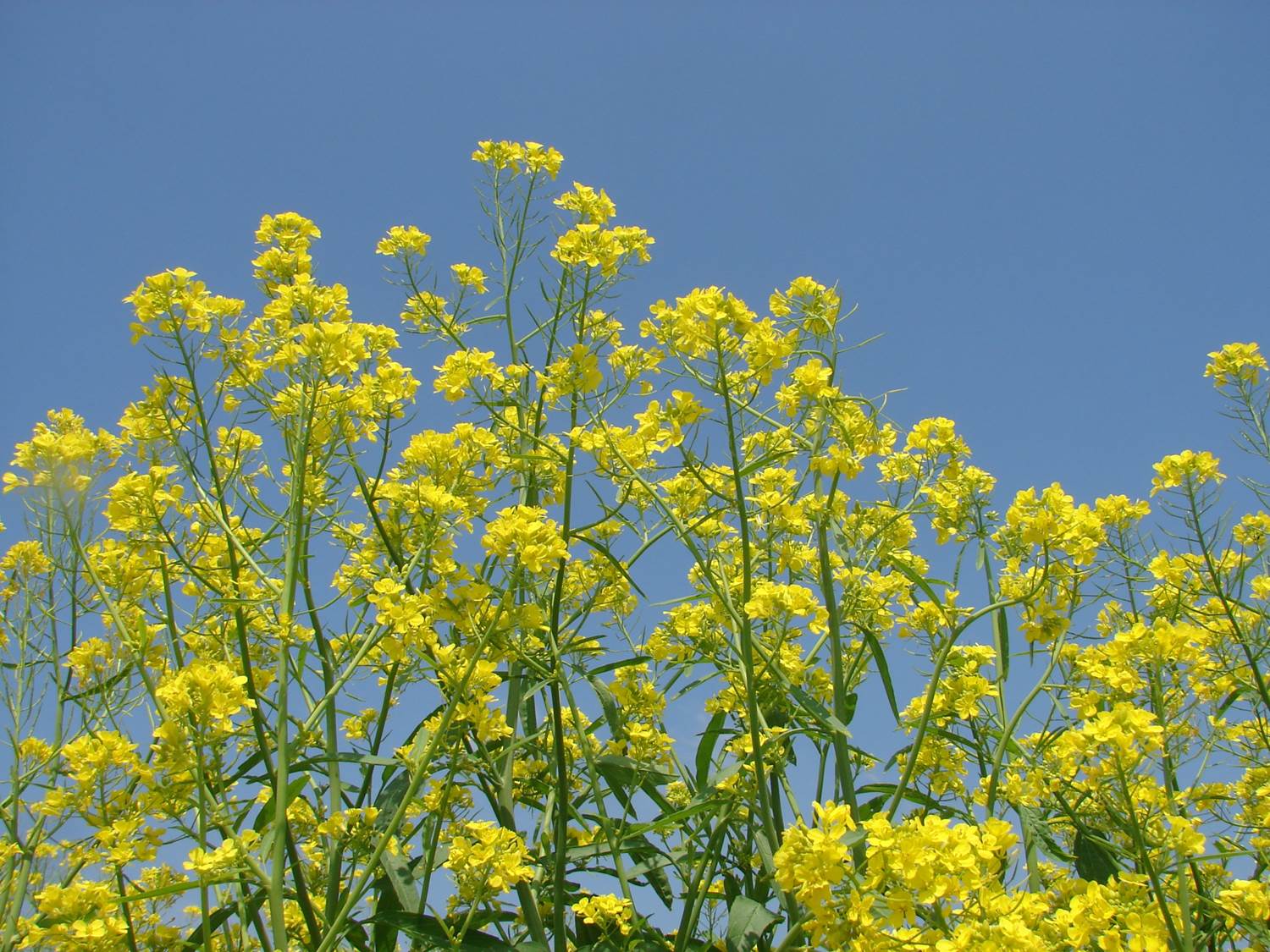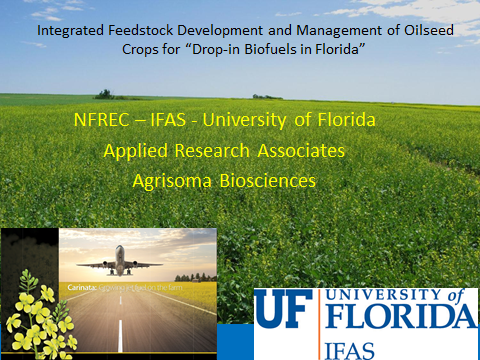
Ethiopian mustard is a crop with real potential in the Southeast since it can be grown on land that has traditionally been fallow during the winter.
Jim Marois, Professor of Plant Pathology, NFREC-Quincy
Researchers at the UF/IFAS North Florida Research and Education Center (NFREC) are working on a new winter crop for the Southeast U.S. Ethiopian mustard, Brassica carinata is an oil seed crop that can be used to make an excellent biofuel.
Because Ethiopian mustard is a cool season crop, it could be grown in rotation with the traditional warm season crops grown in the region. The plant looks a lot like canola, with similar production techniques, planting in the fall and harvesting by April. Ethiopian mustard produces a unique oil that can quickly be converted to a 100 percent drop-in jet fuel.
NFREC Scientists have received several grants, one from the Florida Department of Agriculture and Consumer Services (FDACS), to develop it as a crop. They are cooperating with Applied Research Associates, an engineering firm in Panama City, for the fuel conversion technology, and Agrisoma Biosciences, a Canadian plant breeding firm, has developed the breeding lines. NFREC Scientists will be testing over 6000 lines at NFREC-Quincy this winter, and have contracted a 25 acre field plot with a farmer in Calhoun County. The goal is to identfy lines able to produce 200 gallons of fuel per acre. They are also looking at feeding the by-product press cake to cattle as a feed supplement. This research will be conducted at the feed efficiency facilities at NFREC-Marianna. NFREC Scientists are also interested in the possibility that Ethiopian mustard will improve soil conservation as a winter cover crop, and possibly even reduce nematodes the following season.
If successful, Ethiopian mustard could offer a new income stream to farmers in the Southeast. Especially since it can be grown on land that has traditionally been fallow, or used only for cover crops during the winter.
Additional reading on the subject:
Carinata: A Crop with Potential for Florida’s Farmers
- Reducing Water Demand for Agriculture - June 12, 2015
- Crop Rotation May Determine the Profitability of Peanuts in 2015 - January 30, 2015
- Soybean Rust Update - August 22, 2014

